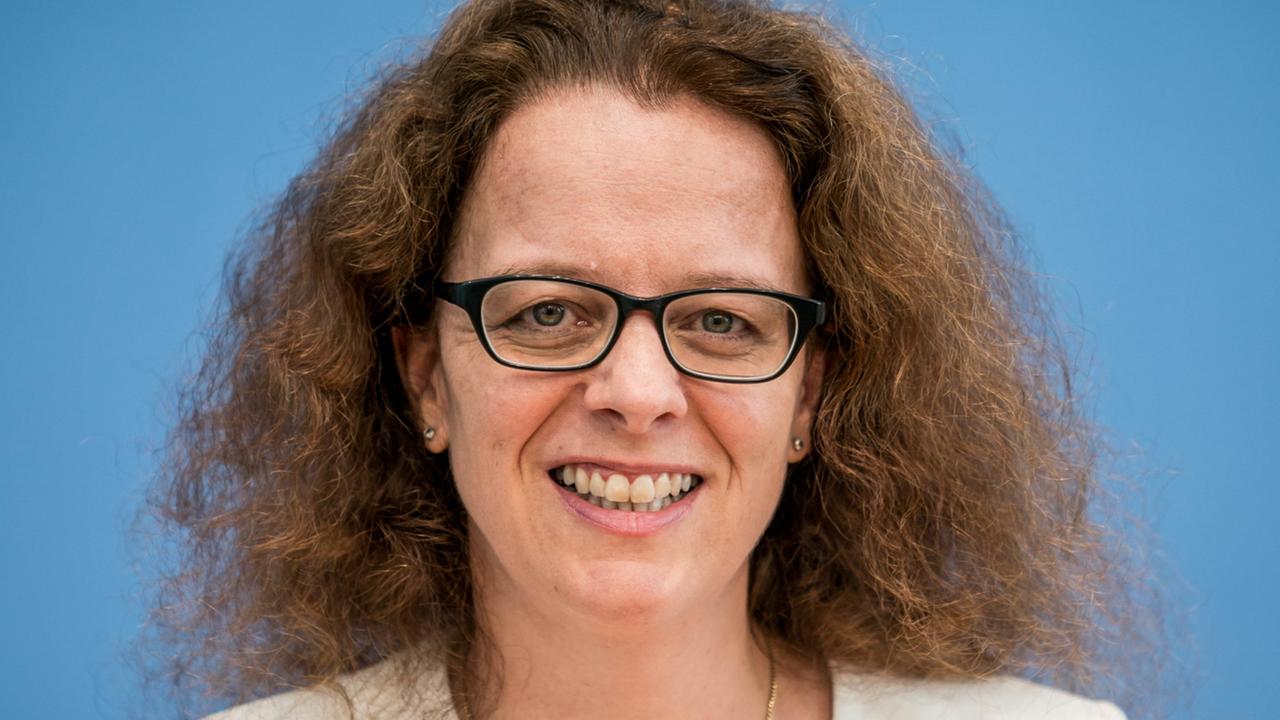interview
Economist Schnabel is a member of the ECB Executive Board who helps decide on interest rates. In an interview, she warns against cutting interest rates too quickly over the course of the year and explains why the risk of wage-price spirals is lower today than in the 1970s.
tagesschau.de: The next time the European Central Bank (ECB) Governing Council will decide on interest rates is on June 6. Will the interest rate turnaround begin then?
Isabel Schnabel: Any decision will be made on the day of the ECB meeting based on all the information available up to that point. There is still a whole series of data that we are awaiting. In this respect, the decision will not be made until the day of the ECB Governing Council meeting. If the inflation outlook and the new data give us confidence that inflation will return to our target of two percent in a sustainable manner, then a rate cut in June is likely.
tagesschau.de: What impact do you expect for savers and borrowers?
Beak: If an interest rate decision is widely expected, market prices adjust in advance. This means that if the interest rate decision is made in line with general expectations, nothing should actually change because that is already priced in. Anyone who takes out a property loan today is already paying less interest than they did a few months ago. This is because market players have long expected interest rates to be reduced in June.
tagesschau.de: If the interest rate turnaround were to come now, will there be further interest rate cuts in the coming months?
Beak: We are satisfied with the noticeable fall in inflation, but the road back to price stability is bumpy. We see that some inflation is very stubborn, especially domestic inflation and particularly in services. We are watching this closely and should take our time. I would warn against moving too quickly. There is a risk that interest rates could be cut too quickly. We should avoid that at all costs.

To person
Isabel Schnabel has been a member of the Executive Board of the European Central Bank since 2020 and is also a professor of financial market economics at the Rheinische Friedrich-Wilhelms-University Bonn. From 2014 to 2019, she was a member of the Council of Economic Experts – also known to the public as the “economic expert”.
tagesschau.de: Inflation is now continuing to fall. What role does the ECB play in this?
Beak: We had a peak in inflation in the euro area of 10.6 percent in October 2022. Inflation has now fallen to just 2.4 percent – that is very encouraging indeed. Of course, not everything is due to the ECB's monetary policy. First of all, some of the factors driving up prices have reversed, especially in energy prices. Monetary policy naturally has little influence on this. But at the same time, rising interest rates have dampened credit growth. This has contributed to a decline in inflation in goods and services.
tagesschau.de: Interest rate increases usually have a negative impact on the economy. What is your preliminary assessment?
Beak: We are now seeing a slight recovery in the economy in the eurozone. At the same time, inflation is still falling. In this respect, we can hope that we will succeed in returning to price stability without a recession. Nevertheless, economic development was weak last year and we experienced stagnation. However, this is partly due to structural factors, such as higher energy prices in the long term or stronger competition from China.
tagesschau.de: Back in the 1970s, central banks managed to initially reduce the inflation rate by raising interest rates. But then inflation rose again. What conclusions do you draw from this?
Beak: One should definitely be cautious and watch the data closely in order to recognize in time if inflation is not developing as we now expect. However, the risk of wage-price spirals is lower today than in the 1970s. Central banks enjoy much greater credibility today and there are fewer automatic wage adjustments to inflation. In this respect, I do not believe that today is comparable to the 1970s.
tagesschau.de: But the unions are succeeding in pushing through significant wage increases. Is there a risk of a wage-price spiral?
Beak: Our main goal is to prevent a wage-price spiral, i.e. a mutual escalation of wages and prices. This depends on wage growth on the one hand and on the extent to which companies pass on the increased wage costs to consumers on the other. We are monitoring this closely. In the current situation, we see that wages have risen sharply, but that wage growth is gradually slowing down. This is in line with our forecasts. We are therefore confident that we will return to the inflation target of two percent in 2025.
tagesschau.de: This inflation target was, in the meantime, a long way off.
Beak: A key reason why we have succeeded in stabilising inflation is that we have managed to stabilise inflation expectations. This means that even though inflation has risen into double-digit territory, people have continued to trust us that we will bring inflation back to the two per cent target. We should not disappoint this trust.
The interview was conducted by Steffen Clement (hr) for the ARD business magazine plusminus.




